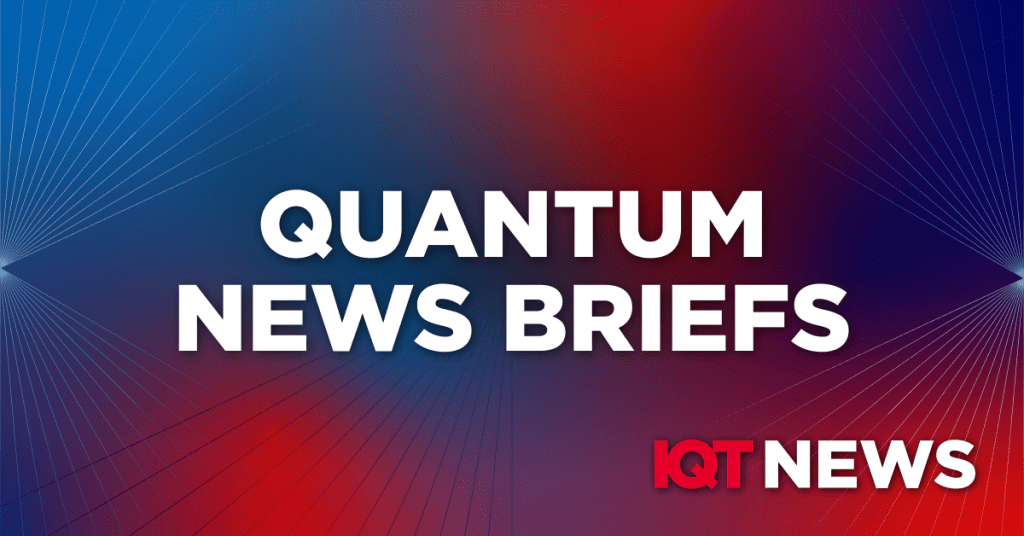Quantum News Briefs: May 1, 2024: press release summaries below:
PsiQuantum to Build World’s First Utility-Scale, Fault-Tolerant Quantum Computer in Australia
PsiQuantum has announced plans to construct the world’s first utility-scale quantum computer near Brisbane Airport in Australia, with a $940 million AUD investment from the Australian Commonwealth and Queensland Governments. The site is expected to be operational by the end of 2027. It aims to develop a fault-tolerant quantum computer capable of solving complex problems across various industries, including renewable energy, healthcare, and transportation. This significant development, utilizing photonics-based quantum technology, is anticipated to advance critical sectors and drive the global economy forward, according to PsiQuantum CEO Prof. Jeremy O’Brien.
Quantum Machines and Hamamatsu Photonics Team Up for Enhanced Quantum Computing Control
Quantum Machines (QM), a quantum control technology leader, has partnered with Hamamatsu to integrate its Observe high-speed camera interface with the ORCA-Quest camera, enhancing quantum computation, communication, and sensing capabilities. This collaboration enables ultra-fast camera readouts for cold atom and trapped-ion qubit experiments. The integration combines QM’s OPX quantum control suite with advanced real-time image processing, achieving feedback times below 100 µs and improving the flexibility and performance of quantum research setups. Both companies emphasize the transformative potential of this synergy, with QM CEO Itamar Sivan highlighting the advancements in quantum measurement precision and speed and Hamamatsu CEO Tadashi Maruno acknowledging the boost in photonics development for quantum computing applications.
RIKEN Selects IBM’s Next-Generation Quantum System to be Integrated with the Supercomputer Fugaku
IBM has announced a new agreement with RIKEN, a Japanese national research laboratory, to deploy IBM’s advanced quantum computing architecture and its highest-performing processor, the IBM Quantum Heron, at the RIKEN Center for Computational Science in Kobe, Japan. This strategic collaboration marks the first instance of a quantum computer co-located with the supercomputer Fugaku. Funded by Japan’s New Energy and Industrial Technology Development Organization (NEDO), the project aims to integrate quantum computing with classical supercomputing to enhance computational capabilities for scientific and commercial applications in the post-5G era. This initiative signifies a significant advancement in hybrid quantum-HPC computing and aligns with IBM’s vision for quantum-centric supercomputing, where quantum and classical systems operate synergistically to tackle complex computational challenges.
New findings from Vienna University of Technology suggest classical quantum physics and nuclear physics can be combined
After years of anticipation, physicists have finally identified a specific energy state in thorium atomic nuclei, promising to revolutionize technological applications, including developing an exceptionally precise nuclear clock. This discovery, led by Prof. Thorsten Schumm from TU Wien and published with collaborators from the National Metrology Institute of Braunschweig in Physical Review Letters, marks the first successful use of a laser to transition a thorium nucleus to a higher energy state and monitor its return. This achievement bridges classical quantum physics and nuclear physics, facilitated by the innovative use of thorium-containing crystals. The finding enables the manipulation of atomic nuclei using laser technology, previously deemed impossible due to the high energy requirements compared to electron transitions in atoms. This breakthrough paves the way for advanced precision measurements. It might lead to new insights into fundamental physics questions, such as the constancy of nature’s constants and their variations over time and space.
In Other News: The Conversation article: “Australia just made a billion-dollar bet on building the world’s first ‘useful’ quantum computer in Brisbane. Will it pay off?”
The Australian government has committed approximately A$940 million (US$617 million) to PsiQuantum, a Silicon Valley-based quantum computing startup, to develop the world’s first “useful” quantum computer, according to a recent the Conversation article written by Chris Ferrie. This investment, with half provided by the Queensland government, will support the establishment of PsiQuantum’s regional headquarters and quantum computer at Brisbane Airport. PsiQuantum’s technology uses photons to process quantum data, which is considered less error-prone than other methods. This move is part of a global race to achieve breakthroughs in quantum computing, with applications ranging from material science to complex computational problems. However, the investment has stirred debate regarding transparency and the selection process over local competitors, emphasizing the need for public trust and education in quantum technology. This initiative aligns with Australia’s strategy to enhance its technological capabilities and economic growth through significant advancements in quantum computing.
